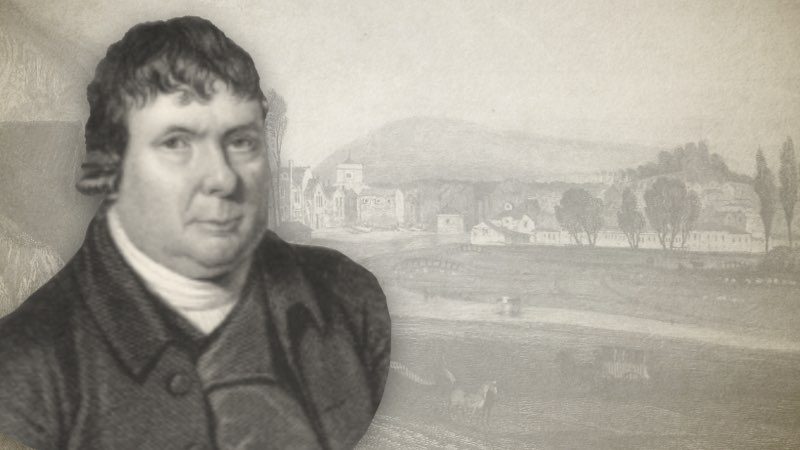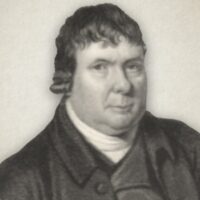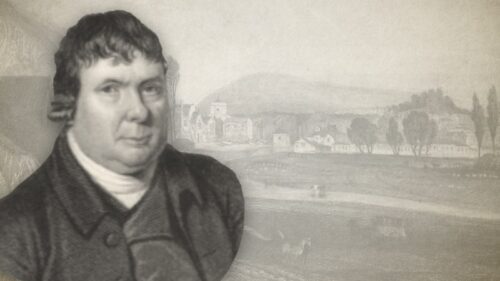
Mr. Huntington’s Dying Testimony To The Power Of Vital Godliness
Gospel Standard 1860:
Dear Brother in the Lord Jesus Christ,—I am come at last, according to my promise, which ought to have been fulfilled before. But, alas! I have sometimes leisure upon my hands, but no heart to work; no oil in my cruse, no spring in my well, no overflowings in my cup. At other times the wind blows, the spices flow out, and the spring of divine life rises; when perhaps I want leisure. And sometimes the poor tabernacle is weary or infirm, when much study becomes a weariness to the flesh. Never right, dear Joseph, nor can be; something will ever be out of joint, off the hooks, impaired, or displaced; something wanted, some thing missing, something deficient; until that blessed period arrives when we shall see him as he is, be changed into his likeness, bear his image, be clothed with his immortality, shine in his rays, swim in. his pleasure, burn in his love, triumph in his victory, bask in his glory, and be filled with all his fulness; made perfect in one, see as we are seen, know as we are known. Then shall the high praises of God be in our mouth and eternal joy upon our head; and our sweet, unwearied, unmolested, un interrupted, and unceasing employ be celebrating the perfections of God and the Lamb for ever and ever! This, my dear brother, is the glory set before us, for which we must endure the cross and despise the shame.
The great God and our Saviour, who only hath immortality, dwelling in the light, shall be revealed; his glory shall cover the heavens, and the new earth shall be filled with his praise; he shall come to be ad mired in his saints, and to be had in honor of all that are about him. Then will the marriage of the Lamb take place, and the long-loved, long-looked-for, long-espoused Bridegroom appear, with all the angels following him; and the bride made ready go out to meet him, with all her train of virgins and companions following her. These shall be brought; “with gladness and rejoicing shall they be brought; they shall enter into the King’s palace.” (Ps. 45:14, 15.) Then shall the wed ding garment of an imputed righteousness adorn us, the Holy Spirit shall make us all glorious within, and the atoning blood of Christ purge us from every corruption, stain, and wrinkle; peace shall adorn our feet, and life, righteousness, glory, and honor shall crown our heads. Thus will the Lord present us to himself a glorious church, and she shall reign with Christ a thousand years. After that, he will present us to his Father, with a “Behold me, and the children which thou hast given me.”
Covet earnestly, in every prayer of thine, the best gifts. Covet life, and love, and the Spirit’s witness in thy heart; covet that assurance with which he seals us up to the day of redemption; covet his adopting cry of “Abba, Father;” covet his consolations, his devotional sensations, and his enlarging operations; together with all his inward instructions, revivals, renewals, humbling meltings, and self-abasing influences, with which he favors poor, helpless, worthless sinners, and then thou wilt see and feel for thyself that the kingdom of God stands in power, in righteousness, peace, and joy in the Holy Ghost. These things swell the heart with heavenly glee and the mouth with melody. “They shall speak of his kingdom, and talk of his power; to make known to the sons of men his mighty acts, and the glorious majesty of his kingdom.”
I am at present very weak and low in body; but, blessed be my God who favors unworthy sinful me with heavenly rays, distant views, and budding hopes. Dear Joseph, adieu!
March, 1813.
W. H., S.S.
[Reading, a short time ago, the “Posthumous Letters” of the late Mr. Huntington, we lighted upon the above letter, and felt it to be very sweet and precious, especially the last paragraph but one. It struck our mind to look at the date., which we found to be March, 1813, and then we recollected it was only about three months before he died, (July 1, 1813,) and entered into the possession of the blessed things named in the above letter. We read it then as his dying testimony, and in this spirit, and under this title, we have given it to our readers. Such a testimony was never more wanted than in the day in which we live.]William Huntington (1745-1813) was an English Calvinist preacher and prolific writer. His influence spread across the country and denominational lines. John Hazelton wrote of him—
“He published one hundred books, large and small, and once mentions being "weary at night, after having been hard at writing for fifteen hours during the day." Henry Cole wrote of him—‘’It may be asked why in my ministration, such as it is, I make frequent allusion to the ministry of that great and blessed servant of the Most High, the late Mr. Huntington. The reasons are these—1st. Because I believe he bore and left in Britain the greatest and most glorious testimony to the power of God's salvation that ever was borne or left therein. 2nd. Because I believe he planted the noblest vine of a Congregational Church that ever was planted therein; and 3rd. Because I believe the Churches that maintain the vital truths he set forth form a very essential feature in the Church-state of Christ in the land in these times, and perhaps will do so to the time of the coming day of God's retribution."
William Huntington, The Child Of Liberty In Legal Bondage (Complete)




